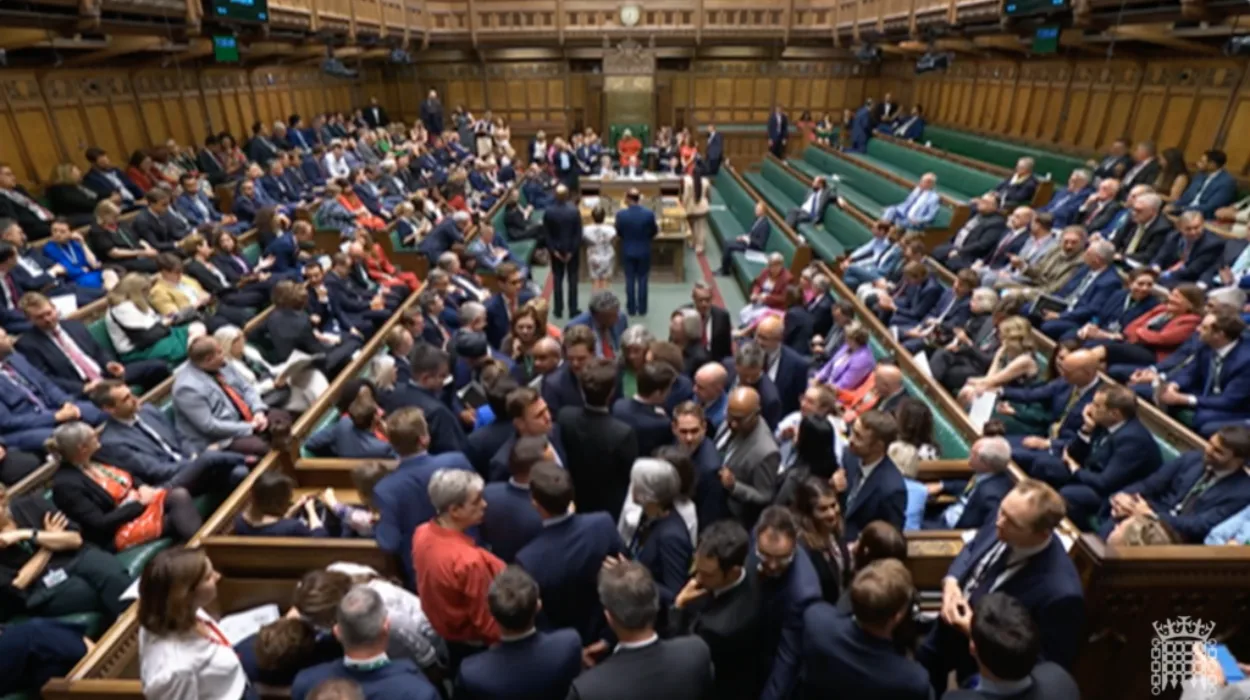If you work in Westminster, as many reading this article do, it is hard to ignore a King’s Speech. The streets are closed down and the surrounding areas get tidied ready for a visit from the monarch, who will turn up in a gold carriage, followed by a crown on a cushion. It is quite the spectacle.
The occasion is largely ceremonial, there is now legal requirement for the government to present Bills announced by the King or anything to stop governments inventing new Bills. It is tempting to ask what the point of it all really is.
Increasingly the monarch is made to utter phrases that are really political slogans. The speech itself is written by the government to promote the government, including their favourite sound bites. This started some time ago under New Labour and continues today as an annoying political habit.
Modern rolling media with the never-ending drumbeat of social media means we know much more about the sympathies of the Royals today. No one really believes that King Charles would agree with an increasingly Net Zero sceptical government, he has spent much of his life campaigning in the opposite direction.
Political debate, too, is now much more instantaneous than it once was, with an almost hourly requirement to control the narrative. The approach to a King’s Speech and the subsequent political jousting is an intensively political affair. Both of these facts raise new question marks over the involvement of the monarch in a way we might not have questioned decades ago.
It might be time to put an end to this ceremony and simply have a speech read out by the Lord Chancellor, which last happened under the reign of Queen Victoria. At least it would be authentic.
Purists will say the ‘Speech from the throne’ is an important symbol of the role of monarchy in our constitution. The relationship between sovereign and Parliament is a famous historical point of contention, but most people would now err on the side of a clear separation of monarch and the mucky business of politics.
There is no requirement for the King or Queen of the day to actually give the speech itself, Standing Orders of the House of Lords allow the Lord Chancellor to deliver the speech if the King gives permission through a Royal patent. It is possible that another Cabinet minister, such as the Leader of the House of Commons, could be instructed to deliver the speech. If the monarch must be involved, a suitably appointed Cabinet minister could visit Buckingham Palace to present a new legislative programme over tea and biscuits.
None of this is to diminish the importance of monarchy in the modern age. Ominously the last MP to really propose doing away with the formalities of the State Opening was Jeremy Corbyn in 1998. Where he and I would most likely differ is in the role of the King. I think we need a larger Royal Family, meeting more people and cutting more ribbons, but it should be completely separate from our political life, which is why I am increasingly uneasy about the King reading out a highly politicised speech subject to the harsh scrutiny of public debate. Spending the day with peers and a few MPs who can squeeze in is not a good use of time or money, at an average cost of £156,000 for the ceremony.
Critics may well say this is a parsimonious, miserable suggestion that does away with one of the most flamboyant moments in the parliamentary calendar. There will be few occasions where so many tiaras can be seen in one place at any one time. Others might question quite why we go to all the bother for a largely ceremonial occasion. Pomp and ceremony has its place and Britain would be the worse for losing it entirely, but we shouldn’t lose sight of the real political meaning of this event and the political noise around it, amplified by social media and never-ending media debate.
Every piece of legislation is controversial, the House literally divides to support or oppose legislation. That controversy should be debated and the business of the House alone. We should let ministers get on with the process of revealing their plans to the House of Commons as a political act and under scrutiny from MPs.
The last serious discussion over reforming the State Opening of Parliament was the early months of a new Labour government in 1997, when some a modest changes were proposed. Conservative MPs were outraged but this was long before Twitter or X was invented and changed the tone of politics.
The Lord Chancellor no longer needs to walk backwards after handing the speech to the King. It was most likely banned after a health and safety zealots ruled it out. It is a misreading of history to suggest the ceremony can’t ebb and flow to fit circumstances, in 2017 the Late Queen turned up in a car, there were no ceremonial robes and she wore a hat instead of a crown. Political life went on much as normal. We live in a more fractious political age and many will ask if it is still advisable for a King (or future Queen) to have any involvement at all in what is a very political occasion.
Frank Young works for a think tank in Westminster. He is writing in a personal capacity.


